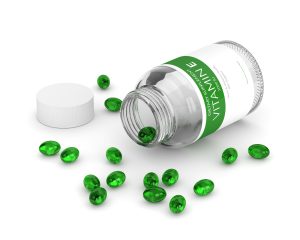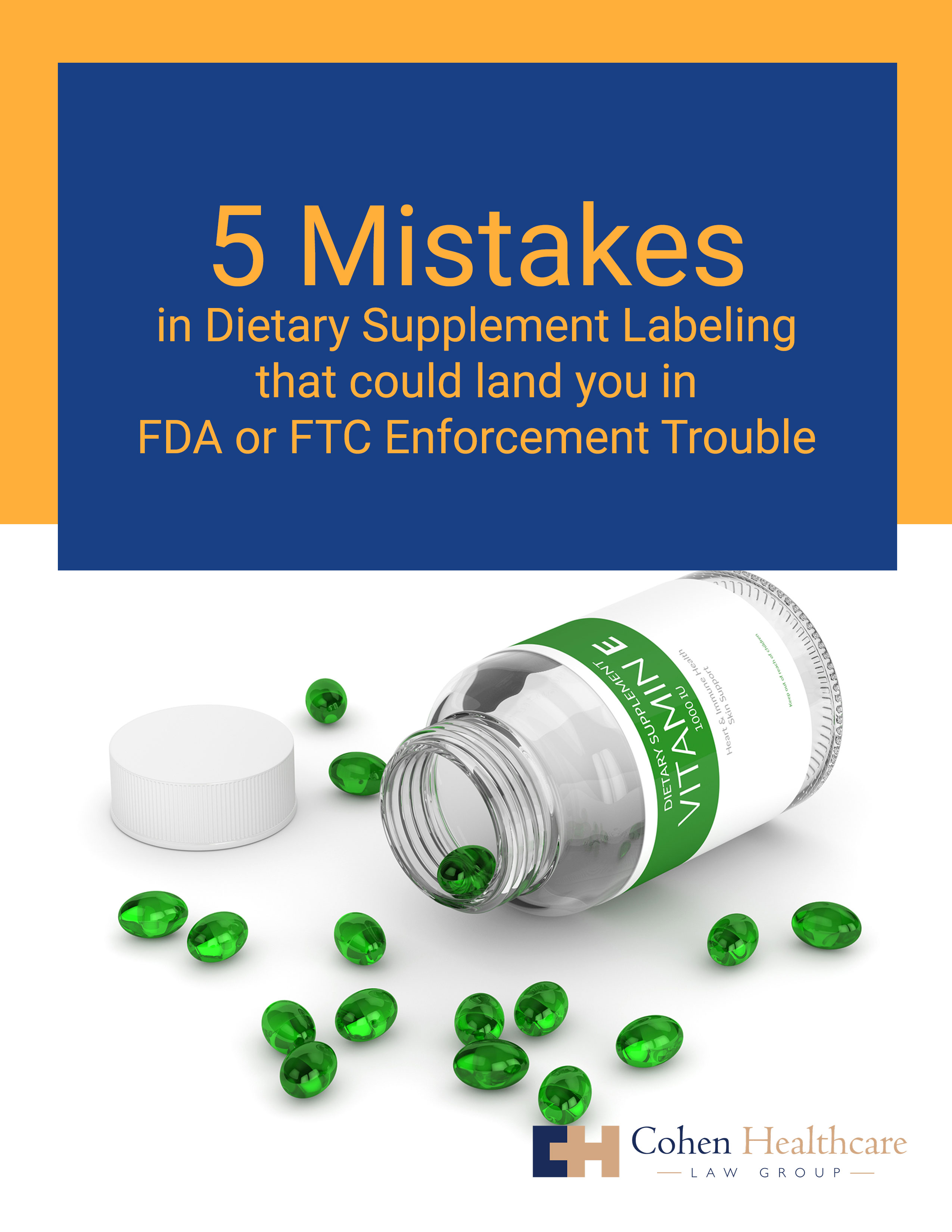

FDA Label Rules are Exacting
As they say in Game of Thrones, 'Winter is Coming.' It's a grim statement that reminds everyone that ahead is nothing but snow and ice. When you're preparing to launch your dietary supplement on the market, think of Eddard Stark, Lord of Winterfell and Hand to the King. Winter is Coming.
You may be private labeling your dietary supplements. You may be a physician creating your own brand. You might think it's an easy business and like so many online businesses, simple and remote and a matter of keystrokes and marketing. Not so. Winter is coming.
FDA rules with respect to the label itself are exacting. And numerous. And scattered across the Code of Federal Regulations like Robert Baratheon's children.
Some dietary supplement companies think they can rely on the label that others have prepared—in fact, they've been assured that the label is FDA-compliant and that there are no regulatory complications. This can be a sure set-up. Misbranding is serious.
Many times, our FDA attorneys review labels prepared by others and find lots of mistakes. What dietary supplement companies fail to realize is that even use of a word they might take for granted – such as '100% natural' – can lead to FDA enforcement, or possibly even a class action plaintiff's lawsuit.
Below are some sample comments from labels we've reviewed. These are intended to give the flavor (pardon the pun) of how exacting label review can be.
The Label Must Comply with Federal Regulations
Some of the common compliance issues we've handled in dietary supplement labels, include:
- Recommended Use
- Serving Size
- The location of a descriptive term such as 'vegetarian'
- Listing dietary supplement ingredients in descending order of predominance
- Font size (yes, that is carefully laid out in the regulations)
- Placement of the business name and address
- Which ingredients must be declared
Also we have addressed issues such as:
- Statements that a particular ingredient is superior to those commonly used in the industry (example: 'four times greater absorption')
- A claim that the supplement is 'non-GMO'
- Use of terms such as 'rich in,' 'high' in, or 'excellent source of' (all of which are discussed in relevant FDA regulations)
- Use of the term, 'highest,' 'maximum,' or 'packed with'
- 'Contains'
- 'Clinically proven'
These are claims that dietary supplement companies often add to their labels; the dietary supplement companies are usually unaware that even the kinds of terms above are discussed in FDA regulations and cannot be used willy-nilly.
Disease Claims are Still Rife
Dietary supplement companies routinely make disease claims without realizing it.
FDA has a lot of lore on the distinction between structure/function claims and disease claims. For example, there are 10 ways a dietary supplement company can make a disease claim (without even realizing it).
Some of the claims that dietary supplement companies often overlook, and fail to realize constitute disease claims, are:
- Fights infections
- Anti-inflammatory
Simply put, you cannot make disease claims because they will render your product an unapproved new drug.
FDA looks to overall context to assess, for example, whether you are marketing for a GI disorder or making a proper structure/function claim. In general, a dietary supplement manufacturer should reframe claims in a proper structure/function format. For example, FDA states: 'a claim that a product “supports the immune system” is not specific enough to imply prevention of disease because the immune system has both structure/function and disease fighting roles.'
Substantiation Issues Create Huge Legal Exposure
On another front, remember that dietary supplement claims must be substantiated by 'competent and reliable scientific evidence.'
Some of the issues that typically present substantiation issues include:
- Claims that the product is 'clinically proven.'
- Claims about evidence (and the evidences do not meet FDA's rigorous criteria above).
- Claims about expected results.
- Claims about mechanism or scientific process.
Unsubstantiated or inadequately substantiated claims are not only problematic from the FDA perspective; they can also generate lawsuits from private plaintiffs, including consumers and competitors. Law firms representing plaintiffs are actively looking for new entrants to the dietary supplement market and scrutinizing their websites and marketing materials for potential fodder for large, class-action lawsuits.
Structure/Function Claims Require Notification to FDA
Dietary Supplement companies must prepare a notification to FDA no later than 30 days after the first marketing of the product that the manufacturer is making the structure/function statement in accordance with the applicable regulation (21 CFR § 101.93(a)).
Among other things, the company will need to include the structure/function disclaimer: 'This statement has not been evaluated by the Food and Drug Administration. This product is not intended to diagnose, treat, cure, or prevent any disease.' FDCA §403(r)(6).
The statement must be 'prominently displayed and in boldface type.' Id. The regulation is very specific about the text, placement, and typesize of the disclaimer. 21 C.F.R. § 101.93.
It's important to remember that while the structure/function claim is required, merely having the disclaimer does not necessarily mean that the claim is valid. Companies that have the structure/function claim disclaimer, but make disease claims, can be subject to enforcement.
Disclaimers don't work if the underlying conduct is unlawful.
See also FDA, Structure/Function Claims ('the manufacturer must have substantiation that the claim is truthful and not misleading and must submit a notification with the text of the claim to FDA no later than 30 days after marketing the dietary supplement with the claim').
Conclusion
It isn't easy to capture on paper all that goes into something like a dietary supplement label review for technical compliance with FDA regulations. The rules are detailed, nitty-gritty, and layered.
In fact, because of the regulatory complexity, we normally mark up a dietary supplement company's PDF with comments so that the company can revise internally. After all, we want a cost-effective process that is efficient yet also thorough.
Remember that claims must be substantiated, and that dietary supplements must not make disease claims. While substantiation and issues of valid claims normally arise in review of the website, often the physical labels for the dietary supplement products themselves can bring these issues to the forefront. In our view, it isn't enough to rely on someone else; the labels and labeling should be reviewed by legal counsel with an eye to the maze of FDA compliance requirements.
One additional issue we haven't even gotten to yet is that we've found some dietary supplement manufacturers making claims about topical application of their dietary supplement product. In this case the manufacturer is confusing a dietary supplement and a cosmetic. Either way, disease claims shouldn't be made, because then the product would likely be classified as a drug.
The best course of action is to contact experienced FDA lawyers to conduct a thorough dietary supplement label review and make appropriate regulatory compliance recommendations.

5 Mistakes in Dietary Supplement Labeling
Subscribe to our mailing list to receive your copy of 5 Mistakes in Dietary Supplement Labeling

Contact our healthcare law and FDA attorneys for legal advice relevant to your healthcare venture.
Contact Us
